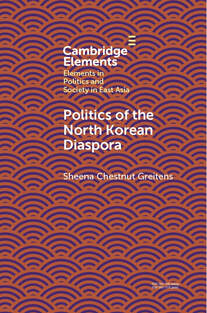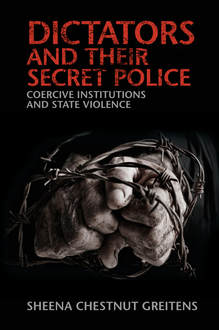Books

Politics of the North Korean Diaspora
- Cambridge: Elements Series on East Asian Society and Politics (Dec. 2023 - publisher webpage)
- Politics of the North Korean Diaspora examines how authoritarian security concerns shape diaspora politics. It traces the emergence of a globally-dispersed community of North Korean émigrés, and argues that the non-democratic nature of the DPRK homeland fundamentally structures diasporic politics. Pyongyang perceives the diaspora as a threat to regime security, and has responded by trying to deter emigration, de-legitimate diasporic voices, and disrupt diasporic political activity, including through transnational repression. This, in turn, shapes the diaspora's perceptions of citizenship and political behavior: original survey data shows that North Korean émigrés have internalized democratic norms in their countries of resettlement, particularly democracy's civic and participatory dimensions. They are comparatively highly engaged in both host-country civic politics and transnational activism.
- The Element demonstrates that regime type is an understudied, important factor shaping transnational and diasporic politics. It contributes to the study of comparative authoritarianism by assessing an often-overlooked global dimension of authoritarian security behavior.
- Summary of main arguments in NKNews here
- See here for a podcast with NK News on "How Dictatorship Shapes the Politics of the North Korean Diaspora"
- See here for a podcast with the U.S. Army War College on the book
- An announcement from UT about the book's publication is here
|
Dictators & Their Secret Police: Coercive Institutions & State Violence
|
How do dictators stay in power? When, and how, do they use repression to do so? Dictators and their Secret Police explores the role of the coercive apparatus under authoritarian rule in East Asia - how secret police organizations originate, how they operate, and how their violence affects ordinary citizens. It argues that autocrats face a coercive dilemma: whether to create internal security forces designed to manage popular mobilization, or defend against potential coup. Violence against civilians is a byproduct of their attempt to resolve this dilemma. Drawing on a wealth of new historical evidence, this book challenges conventional wisdom on dictatorship: what autocrats are threatened by, how they respond, and how this affects the lives and security of the millions under their rule. It offers an unprecedented view into the use of surveillance, coercion, and violence, and sheds new light on the institutional and social foundations of authoritarian power.
More About the Book:
More About the Book:
- Academic roundtable on the book at H-Diplo/ISSF here (pdf here)
- Q&A with the Weatherhead East Asian Institute here
- Review in Democratization here
- Review in Foreign Affairs here or here
- Review in Global Asia here
- Review in Governance here
- Review in Political Science Quarterly here
- Review in Perspectives on Politics here
- Available for purchase on Amazon here
Photo: Police Diary during Suppression of the 1980 Kwangju Uprising, South Korea
